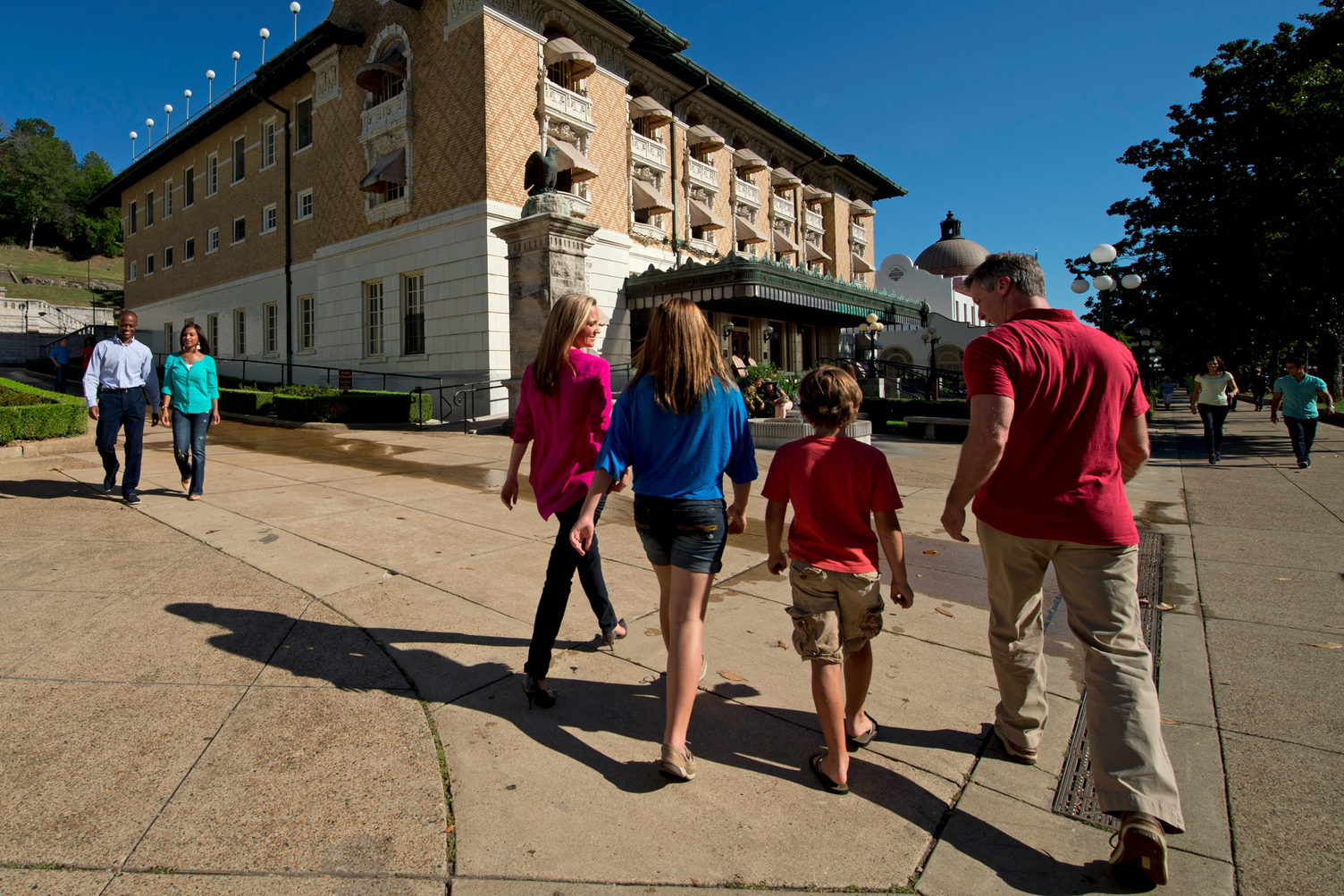Imagine a world where the simple act of relaxing in hot springs could actually boost local economies. Well, it turns out that this is not just a fantasy, but a reality that many towns around the world are experiencing. Hot springs tourism has been on the rise in recent years, and it has become a major source of revenue for local businesses and communities. From increased tourism to job opportunities, the economic benefits are undeniable. In this article, we will explore just how local economies are benefiting from the booming industry of hot springs tourism. So sit back, relax, and prepare to be amazed at the incredible impact that hot springs can have on a community. Hot springs tourism has proven to be a powerful economic driver for local communities around the world. As visitors flock to these natural wonders seeking relaxation, wellness, and connection with nature, the positive impact on the local economy becomes evident. Let̵7;s explore the various ways in which hot springs tourism contributes to the growth and development of local economies.
Increased Revenue
Hot springs tourism significantly boosts local revenue by attracting visitors who spend their money on various goods and services. From accommodation and dining to shopping and entertainment, tourists have a wide range of opportunities to explore and spend their hard-earned money. This injection of funds into the local economy can provide a vital financial boost for businesses and individuals alike. Additionally, the revenue generated from hot springs tourism helps to create a multiplier effect, as the money spent by tourists continues to circulate within the community, benefiting other sectors and supporting further economic growth.
Tourism-related spending
One of the primary sources of increased revenue through hot springs tourism is the direct spending by tourists. Visitors often indulge in luxurious spa treatments, therapeutic massages, and rejuvenating wellness packages, generating substantial income for local hot spring resorts and wellness centers. Moreover, tourists tend to dine in local restaurants, enhancing the food and beverage sector, and purchase souvenirs, crafts, and local products, boosting the retail industry.
Job creation
The influx of tourists seeking the tranquility and healing powers of hot springs creates employment opportunities for the local community. Hotels and resorts require staff to handle accommodation, catering, housekeeping, and maintenance, while nearby attractions and recreational facilities need personnel for management and operations. Additionally, the growing demand for unique experiences and services has led to the emergence of new occupations, such as local tour guides specializing in hot springs tours and wellness experts providing specialized treatments.
Increased tax revenue
With the rise in business activities and tourist spending, local governments benefit from increased tax revenue. This extra income can be invested in infrastructure development, healthcare, education, and other essential services, leading to an overall improvement in the quality of life for residents. The additional tax revenue can also be used to preserve the local heritage and natural resources, ensuring the sustainable development of hot springs tourism for future generations to enjoy.
Diversification of Economy
By emphasizing hot springs tourism, local economies can reduce their dependency on traditional industries and create new business opportunities. Traditional industries, such as agriculture and manufacturing, may face challenges due to changing economic conditions or limited growth potential. However, by leveraging the unique natural resource of hot springs, communities can develop a niche tourism market that diversifies their economy and stimulates new economic growth.
Reduced dependency on traditional industries
Hot springs tourism provides an alternative revenue stream for communities that have relied on declining industries. Focusing on this sector allows local economies to adapt and evolve, reducing their vulnerability to economic shocks. By diversifying their income sources, communities can build resilience and ensure a sustainable future for their residents.
New business opportunities
Hot springs tourism opens up a myriad of opportunities for entrepreneurs and small business owners. From establishing boutique hotels and bed-and-breakfasts to starting adventure tourism ventures and wellness retreats, entrepreneurs can leverage the natural attraction of hot springs to create successful and unique businesses. Furthermore, local artisans and craftsmen can showcase and sell their products through the development of hot spring-themed markets or craft fairs, creating an avenue for economic growth and artistic expression.
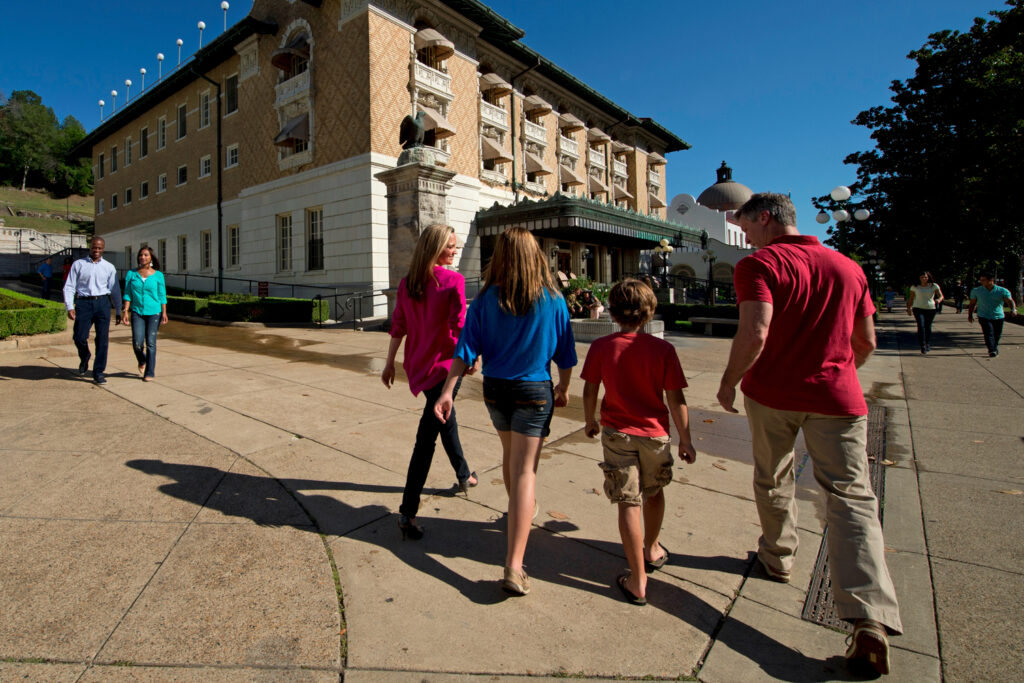
Improved Infrastructure
As hot springs tourism continues to gain popularity, there is a need to develop and upgrade the infrastructure necessary to support the influx of visitors. Improved transportation facilities and enhanced public facilities not only enhance the visitor experience but also benefit the local community.
Upgraded transportation
In order to accommodate increased tourist traffic, it becomes imperative to upgrade transportation infrastructure. This may involve expanding road networks, improving public transportation systems, and enhancing accessibility to hot springs. These improvements not only benefit tourists but also make commuting easier for local residents, improving overall connectivity and facilitating the movement of goods and services.
Enhanced public facilities
The growth of hot springs tourism often leads to the development and enhancement of public facilities. This includes the construction of public parks, walking trails, picnic areas, and other recreational facilities. Such amenities not only cater to the needs of tourists but also provide local residents with increased access to leisure activities and spaces for social interaction. Improved public facilities can foster a sense of pride and community among the residents, contributing to an enhanced quality of life.
Preservation of Local Heritage
Hot springs are often intertwined with a region’s history and cultural heritage. As tourism emerges around these natural wonders, it becomes crucial to preserve and showcase the local heritage.
Historical preservation
Hot springs are often associated with historical sites and landmarks, some of which hold significant cultural value. Local communities can leverage hot springs tourism to raise awareness and funds for the preservation and restoration of historical structures and sites. By protecting these cultural treasures, communities not only retain a sense of identity but also attract history enthusiasts and cultural tourists, creating a sustainable tourism market.
Cultural conservation
Hot springs tourism provides an opportunity to celebrate and promote local culture and traditions. Local communities can organize cultural events and festivals that highlight traditional music, dance, arts, and crafts. Furthermore, supporting local artists and artisans not only helps to preserve traditional artistic practices but also provides them with a platform to showcase their talent to a larger audience. By preserving and celebrating the local culture, communities can create a unique and authentic tourism experience for visitors.
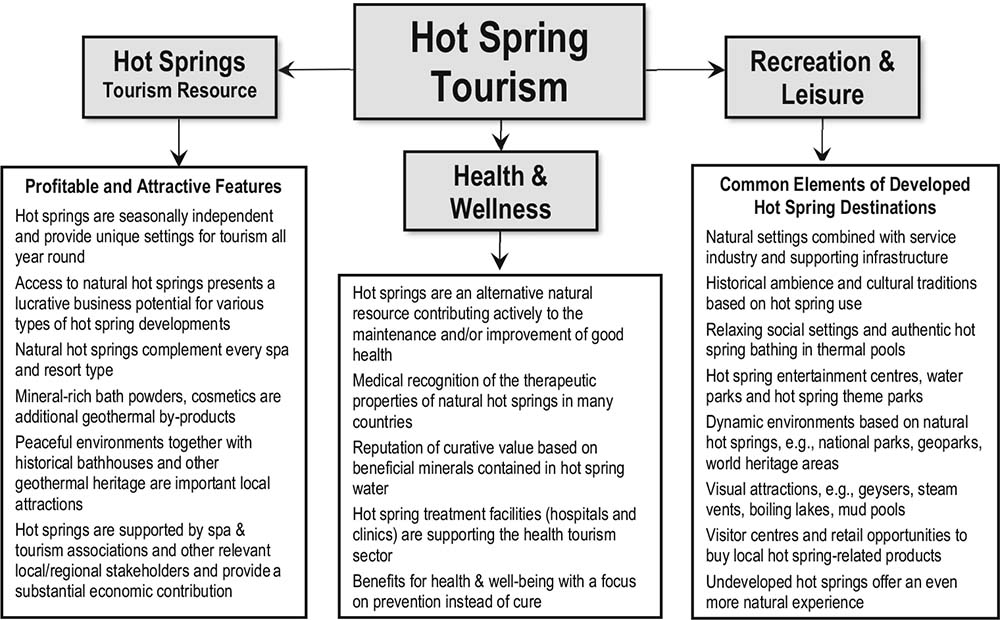
Positive Environmental Impact
Hot springs tourism can have a positive environmental impact when managed responsibly and sustainably. Emphasizing sustainable practices and conservation efforts helps to protect the natural environment and ensures the long-term viability of hot springs tourism.
Focus on sustainable practices
Responsible hot springs tourism involves adopting sustainable practices to minimize negative impacts on the environment. This includes managing water resources efficiently, implementing waste management strategies, and promoting eco-friendly practices within the hospitality sector. By prioritizing sustainability, communities can attract environmentally conscious tourists who value destinations that prioritize conservation.
Conservation efforts
Hot springs are often located within natural landscapes and ecosystems, making them vulnerable to environmental degradation. Local communities can actively participate in conservation efforts by protecting the surrounding flora and fauna, preserving biodiversity, and managing the ecological balance. Such conservation initiatives not only ensure the long-term survival of hot springs but also contribute to the health of the local ecosystem. Visitors who appreciate and respect the pristine natural surroundings are more likely to support and engage with these conservation efforts.
Enhanced Quality of Life
The emergence of a thriving hot springs tourism industry brings significant benefits to the quality of life for local residents. The availability of recreational activities and improved community amenities can foster a sense of pride and satisfaction among residents.
Access to recreational activities
Hot springs often offer a range of recreational activities such as hiking, swimming, and nature walks. These activities provide an opportunity for local residents to connect with nature and engage in physical exercise. Beyond the immediate health benefits, access to recreational activities promotes a healthier and more active lifestyle, contributing to an improved quality of life for residents.
Improved community amenities
As the tourism industry grows, so does the need for infrastructure such as restaurants, shops, and entertainment venues. The presence of these amenities not only serve the needs of tourists but also enhance the quality of life for local residents. Residents can enjoy a broader range of dining and entertainment options, while the increased demand may attract new businesses to the area, further diversifying the local economy.
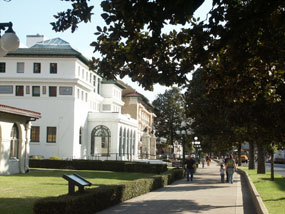
Promotion of Arts and Culture
Hot springs tourism provides an ideal platform to promote and support local arts and culture. By nurturing artistic talent and organizing cultural events, local communities can enrich the tourist experience and showcase their unique heritage.
Support for local artists
Hot springs destinations can collaborate with local artists and promote their work through galleries, exhibitions, and art installations. This support not only provides a boost to the local art scene but also gives visitors a chance to appreciate and purchase unique pieces that capture the essence of the destination. By emphasizing the connection between art and hot springs, communities can create a vibrant and culturally rich tourism experience.
Cultural events and festivals
Organizing cultural events and festivals centered around hot springs further reinforces the sense of community and celebrates local traditions. These events attract both locals and tourists, creating opportunities for cultural exchange and fostering a sense of appreciation for diversity. The unique combination of cultural events and hot springs creates a memorable and enriching experience for visitors, encouraging them to return and recommend the destination to others.
Education and Research Opportunities
Hot springs serve as natural laboratories for scientific research, providing valuable opportunities for education and learning. From exploring the geological aspects to studying the therapeutic properties, hot springs tourism can foster knowledge and curiosity among students and researchers.
Scientific studies on hot springs
Hot springs are rich sources of geothermal energy, minerals, and unique microbial ecosystems. Scientific studies on hot springs enable researchers to gain insights into these natural phenomena and contribute to scientific knowledge. Local academic institutions and research organizations can collaborate with tourism stakeholders to conduct studies on geothermal energy, water quality, and biodiversity, adding to the body of knowledge in these fields.
Learning opportunities for students
Hot springs tourism provides a valuable learning experience for students interested in geology, ecology, hospitality, and wellness studies. Local communities can establish educational programs that allow students to gain practical experience in these fields, providing them with valuable skills and knowledge. These programs not only benefit the students but also contribute to the professional development of the local workforce, making them better equipped to provide high-quality services to tourists.
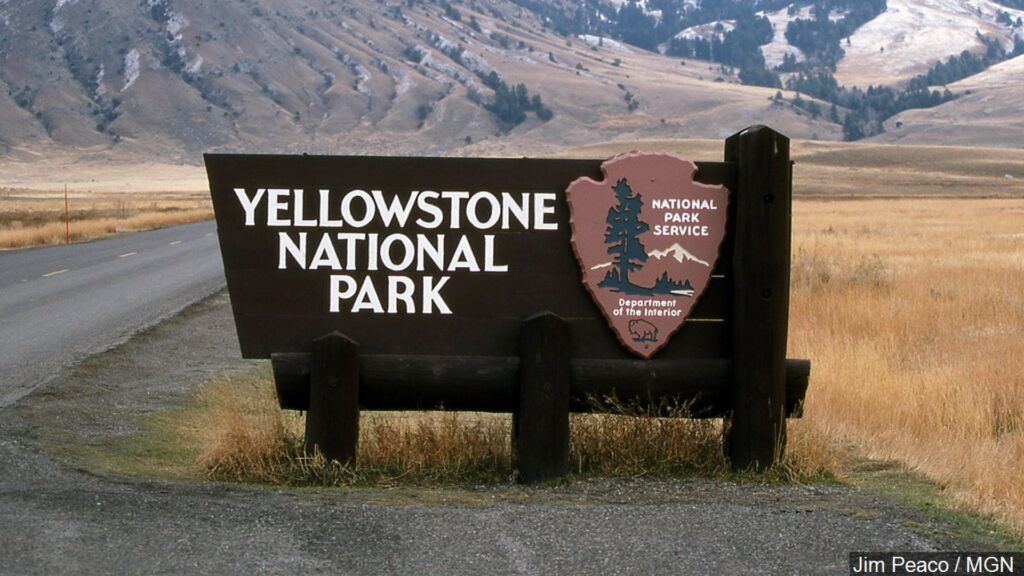
Boost in Real Estate Value
As hot springs tourism flourishes, the demand for properties in the surrounding areas tends to increase. This surge in demand can lead to higher property values, benefiting property owners and the local economy.
Increased demand for properties
The natural allure of hot springs often attracts real estate investors and individuals looking for vacation homes or second residences. The scenic beauty, tranquility, and healing properties associated with hot springs make the surrounding areas an attractive investment opportunity. The increased demand for properties drives economic activity, creating opportunities for construction companies, contractors, and real estate agents.
Higher property values
The rise in demand for properties near hot springs can lead to an increase in property values. As more people seek homes or properties in these areas, the limited supply drives up prices, benefiting existing property owners. The higher property values translate into increased potential for wealth creation, as homeowners can leverage their increased equity for various financial opportunities. Moreover, the increased value of properties contributes to a stronger local economy and tax base, generating additional revenue for the community.
Collaboration and Networking
Hot springs tourism encourages collaboration and networking among various local businesses and tourism industry associations. By working together, communities can maximize the benefits of tourism, foster innovation, and create a supportive business environment.
Partnerships with other local businesses
Hot springs tourism often attracts visitors with diverse interests and needs. By collaborating with other local businesses, such as adventure tourism operators, spas, and wellness centers, communities can offer comprehensive packages that cater to a wider range of visitor preferences. This collaboration creates cross-promotional opportunities, strengthens the local economy, and encourages visitors to explore all that the destination has to offer.
Tourism industry associations
Joining tourism industry associations and networks helps local communities stay informed about industry trends, best practices, and marketing strategies. These associations provide a platform for knowledge sharing, enabling communities to learn from each other’s successes and challenges. By actively participating in industry associations, communities can gain exposure, attract more visitors, and navigate the evolving tourism landscape more effectively.
In conclusion, hot springs tourism demonstrates significant potential for driving economic growth and benefiting local economies in various ways. From increased revenue and job creation to the preservation of local heritage, environmental conservation, and the promotion of arts and culture, hot springs tourism offers a multitude of economic and social advantages. By capitalizing on the unique attributes of hot springs, local communities can unlock their economic potential while preserving and celebrating their natural and cultural heritage.

